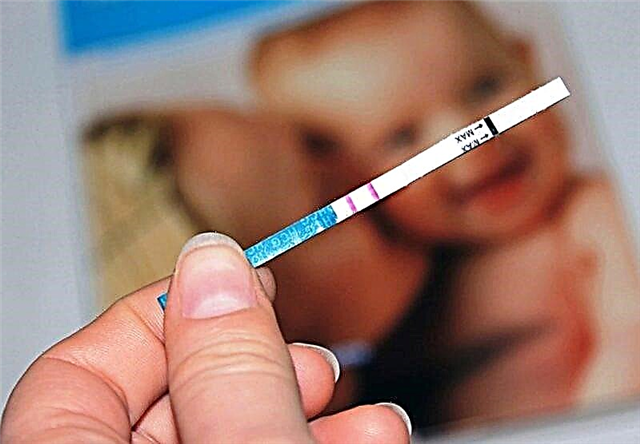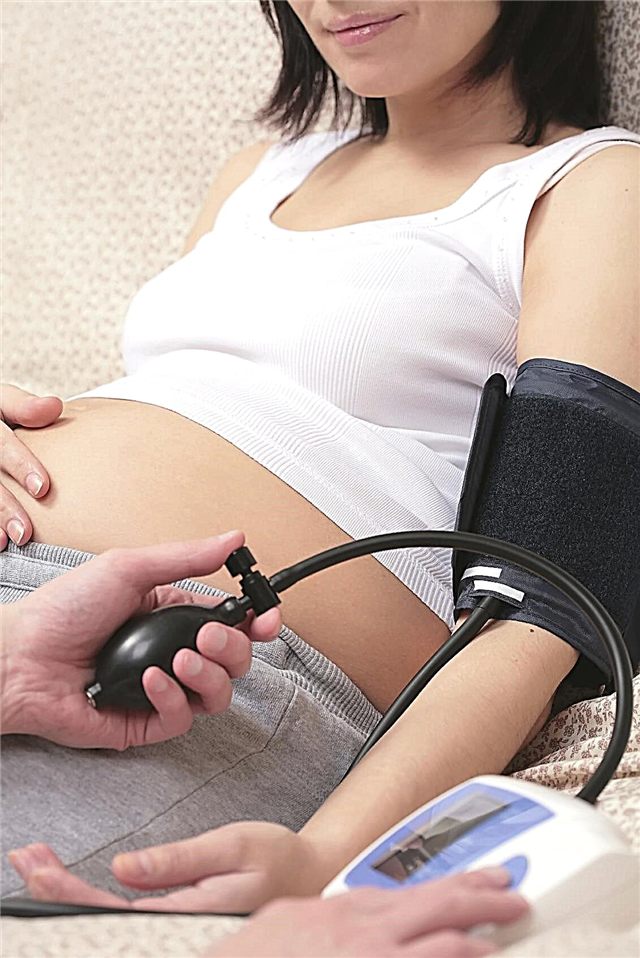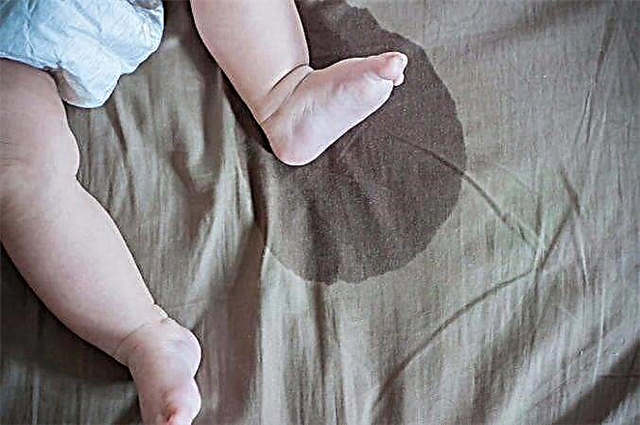Usually, the smell of gases emitted from the intestines in adults is determined by the diet, that is, it depends on the type of food eaten. When a baby farts with a smell, parents may be alert, because he does not eat anything but milk. Does this indicate a health problem?

The child has gas
Infant gastrointestinal tract
The gastrointestinal tract of newborns in the first months adapts to the digestion of food, its microflora is formed, inhabited by bacteria. Gas formation is a process accompanying digestion. Therefore, babies farts more than adults, not often the exhaust gases will smell strong. If a baby has a smelly bunch, it very rarely may indicate some pathology.
Causes of increased gas formation
Gas is nothing more than excess air in the intestines. Adaptation processes cause intestinal colic in infants - a common condition in infants, and it is accompanied by the formation of gas.
There are other reasons for gas formation:
- Swallowing air while feeding. This happens when a breastfed baby misses a nipple in his mouth or eats in a hurry and greedy;

Baby sucking breast
- Consumption by a nursing mother of food that causes flatulence (cabbage, legumes, etc.). However, this relationship has not been proven. Many experts believe that such products provoke flatulence only in the mother and do not affect the child in any way;
- Genetic factor;
- The presence of parasites in the baby's digestive tract;
- Gastrointestinal pathology;
- Intolerance to lactose and other food ingredients;
- Nervous stress.
Odorless gases
Important! Gas in the intestines is quite natural. As long as they are not in excess and do not have an unpleasant odor, this is not a cause for concern. On the contrary, they improve bowel motility.
Intestinal gases are composed primarily of hydrogen, carbon dioxide, methane and nitrogen. These substances are formed during the breakdown of complex carbohydrates. If the baby swallows air during feeding, more oxygen is added. When some food ingredients are oxidized, babies develop strong-smelling gases. This can happen during the digestion of formula components, especially fats.
If a child farts with rotten eggs, the intestinal microflora may be disturbed. A lack of some bacteria and an excess of others impede the digestion process and cause food debris to rot, which is accompanied by the appearance of fetid gas. The causes of microflora disorders, for example, are antibiotic treatment and the subsequent occurrence of dysbiosis.
The child farts smelly when constipated due to weak intestinal motility. Stool stagnates and becomes a source of unpleasant odor.
Parents' actions
In case of the appearance of smelly gases in the baby, increased attention from the parents will be required:
- monitoring the condition of the baby;
- assessment of the frequency of bowel movements and the appearance of feces: whether constipation or diarrhea is present, in the latter case, whether there is foam, mucus or blood.
If no changes have occurred, and the baby just farts smelly, then there is no need to worry, but you can give the baby more water to drink to improve digestion and intestinal motility.
Important! If the child not only fouls badly, but also behaves restlessly, often cries, sleeps poorly, and has problems with stool, it is necessary to show him to the doctor.

Colic in infants
Doctors usually do a study of the baby's stool, and also analyze the composition of breast milk. Specialized treatment is only given if gastrointestinal diseases are the cause of odorous gas.
At 2 months
Two-month-old babies have not yet received complementary foods, therefore, their gases can stink, for example, due to imbalanced intestinal microflora or in the absence of an enzyme necessary to digest cow's milk.
Breastfeeding mothers can be advised to stop consuming cow's milk and dairy products, as well as replace fresh fruit in their diet with baked ones. Bottle-fed babies should be given lactose-free formulas.
At 3 months
At 3 months, the same problems remain as in two-month-old babies. If the babies are artificially fed, and the parents noticed that the baby farts with an unpleasant odor after replacing the milk formula, it is necessary to abandon this type of formula and try another.
You should also continue to observe the baby's stool. If he is absent for 1-2 days, and then feces come out in the form of hard balls, then fetid gases can be a companion of constipation. You need to give your baby water or breast milk more often. If the stool does not normalize, you should consult your doctor.
At 4 months
Despite the advice of pediatricians to start complementary feeding for babies from 6 months of age, some mothers are already trying to give it from 4 months, for example, apple juice drop by drop, and then spoonful. It can also cause foul-smelling gas in babies. In this case, there are no health problems, if the baby does not have symptoms of allergy to the introduction of a new product, the appearance of an odor during the waste of gases accompanies normal digestive processes.

The baby is given juice from a spoon
Prevention of gas formation in infants
The adaptation of the children's digestive system, the colonization of intestinal microflora with bacteria usually lasts up to 3-4 months, sometimes up to 6. At this time, many babies suffer from excessive gas formation and intestinal colic. However, the suffering of the baby can be alleviated by taking preventive measures:
- Don't give your baby too much food. This can provoke the appearance of excess gases;
- Do not allow the baby to get hungry, then he eats very quickly and swallows air;
- When breastfeeding, dairy products, caffeine, onions, cabbage and other potentially irritating foods should be excluded from the mother's diet;
- It is necessary to ensure that the baby correctly takes the nipple into the mouth, tightly covering the adjacent area with his mouth. When sucking from a bottle, the hole in the nipple should be neither too small, so that the baby is not nervous, nor too large when the formula is poured out very quickly;
- If a baby eats an adapted mixture made from powder, during preparation it is necessary to wait until it is completely dissolved, but not to stir for a long time and intensively. The more you stir, the more air bubbles enter the mixture, as a result, the child swallows more air;
Important! For children with increased gas production, it is better to use ready-to-drink formulas.
- Spread the baby shortly before feeding on the tummy;
- Do not experiment with new formulas for babies if they tolerate a certain species well;
- Herbal tea with fennel, anise and caraway seeds prevents excess gas formation;
- Bathing in warm water, massage in a circular motion clockwise of the baby's tummy, gymnastic exercises, for example, flexion-extension of the legs, "bicycle", contribute to the departure of gaziks.

Tummy massage for colic
Excessive formation of gases, including those with an unpleasant odor, in the infant's digestive tract is a natural phenomenon that passes over time. This should not cause much concern, but preventive measures should be taken to reduce painful processes.



